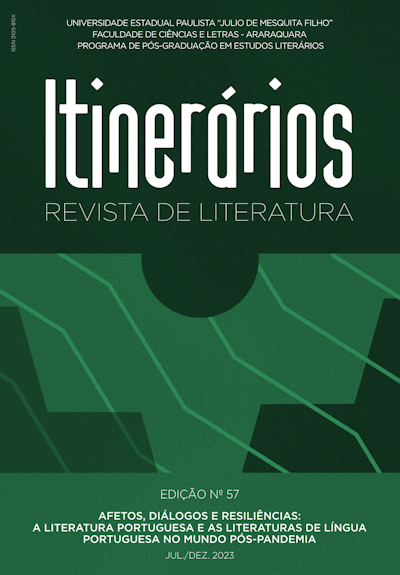30 years without Manuel da Fonseca
considerations on the theme of childhood in his short stories
DOI:
https://doi.org/10.58943/irl.v1i57.18727Keywords:
Neorealism, Manuel da Fonseca, Childhood, Aldeia Nova, Poetic proseAbstract
2023 marks 30 years since the death of one of the great exponents of the Portuguese neorealist movement, Manuel da Fonseca. On the occasion of this anniversary, it is important for us to review his work, rethink it and reflect on aspects that confirm its originality. Thus, although we take into account all of his work, we take as a corpus the collection of short stories Aldeia Nova. Among several interesting themes in the narratives, childhood draws attention because it is worked on in a particular way by Manuel da Fonseca: the child is not only the center of some of the stories, but is also responsible for focusing the events and permeates the entire book. The reader has contact with the harsh reality of the fictional space through the curious, innocent and discovering eyes of these characters who, while not actively participating in the socioeconomic system, analyze it in a different and revealing way. This entire look is marked by the playful use of poetic prose. Therefore, the aim of this work is to verify the relevance of children’s issues in Manuel da Fonseca’s narrative construction, starting from two short stories from Aldeia Nova: “O primeiro camarada que ficou no caminho” and “Sete-estrelo”. To this end, we took ‘close reading’ as a methodology and as the main basis the Discurso da narrativa, by Gérard Genette ([197-]) and “O concerto dissonante da modernidade”, by Antônio Donizeti Pires (2006).
Downloads
Published
Issue
Section
License
Os manuscritos aceitos e publicados são de propriedade da revista Itinerários. É vedada a submissão integral ou parcial do manuscrito a qualquer outro periódico. A responsabilidade do conteúdo dos artigos é exclusiva dos autores. É vedada a tradução para outro idioma sem a autorização escrita do Editor ouvida a Comissão Editorial.

